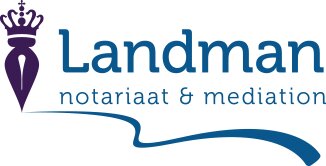Best Restructuring & Insolvency Lawyers in Meppel
Share your needs with us, get contacted by law firms.
Free. Takes 2 min.
List of the best lawyers in Meppel, Netherlands
Netherlands Restructuring & Insolvency Legal Articles
Browse our 1 legal article about Restructuring & Insolvency in Netherlands written by expert lawyers.
- Netherlands WHOA Guide: How Creditors Can Protect Their Rights
- The WHOA (Dutch Court Confirmation of Extrajudicial Restructuring Plans) allows companies to restructure debt without the consent of all creditors. A "cross-class cram-down" can bind dissenting classes of creditors to a plan if at least one "in-the-money" class votes in favor. Creditors have limited windows to challenge a plan, usually... Read more →
About Restructuring & Insolvency Law in Meppel, Netherlands
Restructuring and insolvency law in Meppel, Netherlands, is governed by a combination of national regulations, European Union directives, and local jurisprudence. This area of law is designed to help companies and individuals address financial difficulties in a structured manner. Restructuring usually involves reorganizing the financial and operational aspects of a business to restore its viability, while insolvency refers to situations where a debtor is unable to pay their debts as they become due. In Meppel, courts, expert advisors, and insolvency practitioners (curatoren) play a pivotal role in guiding parties through these complex processes.
Why You May Need a Lawyer
There are several situations in which seeking legal advice for restructuring and insolvency becomes essential. If your business is experiencing cash flow problems, mounting debts, or threats from creditors, a lawyer can provide crucial guidance about your options. Individuals facing personal bankruptcy or legal claims from creditors may also benefit from tailored legal assistance. Additionally, creditors who wish to recover outstanding debts must adhere to specific legal procedures, best navigated with professional help. Whether you are seeking to avoid insolvency through restructuring or looking to mitigate losses in the event of bankruptcy, an experienced lawyer can protect your interests and guide you through legal obligations and rights.
Local Laws Overview
In Meppel, restructuring and insolvency operate primarily under the Dutch Bankruptcy Act (Faillissementswet), which applies across the Netherlands. This act details the legal requirements for declaring bankruptcy (faillissement), applying for suspension of payments (surseance van betaling), and settlement with creditors through debt restructuring (schuldsanering). Local courts in Drenthe, including the Noord-Nederland District Court, oversee bankruptcy proceedings and appoint insolvency practitioners. Recent Dutch legislative changes have also introduced new tools, such as the WHOA (Homologation Private Restructuring Plan), allowing distressed companies to negotiate restructuring plans with creditors without full insolvency proceedings. Compliance with procedural rules, timely filings, and adherence to creditor hierarchies are fundamental aspects of local practice.
Frequently Asked Questions
What is the difference between restructuring and insolvency in Meppel?
Restructuring aims to reorganize a company's finances to avoid insolvency, while insolvency refers to legal recognition that a debtor cannot meet its financial obligations, often leading to bankruptcy or liquidation.
Can individuals declare insolvency or is it only for companies?
Both individuals and legal entities such as companies can be subject to insolvency proceedings in the Netherlands, including in Meppel. Different rules and processes may apply depending on the debtor's status.
What are common outcomes of insolvency proceedings?
Common outcomes include liquidation of assets to pay off debts, agreements with creditors, or, for individuals, participation in a debt restructuring plan (WSNP) that provides debt relief after successful completion.
How long does the insolvency process take?
The timeline varies depending on the complexity of the case, the amount of debts, and cooperation among parties. Some bankruptcies resolve in a few months, while others can take years.
What is a curator or insolvency practitioner?
A curator is a court-appointed professional responsible for managing the assets and affairs of the insolvent party, liquidating assets, and overseeing the distribution to creditors.
What happens to employees during insolvency?
Employee contracts are usually terminated, but the Dutch Employee Insurance Agency (UWV) may cover unpaid wages for a limited period. Employees also have a preferential status among creditors.
Do creditors have any say in the insolvency and restructuring processes?
Creditors can participate in creditor meetings, vote on restructuring proposals, and submit their claims to the curator or the court, influencing distribution and potential recovery of debts.
Is it possible to avoid bankruptcy with early legal intervention?
Yes, seeking early legal advice can lead to negotiated settlements, restructuring arrangements, or use of preventive restructuring tools like WHOA, often avoiding the need for formal bankruptcy.
Are there alternatives to court-supervised insolvency in Meppel?
Alternatives include out-of-court arrangements with creditors, voluntary debt restructuring, and the use of the WHOA process for private restructuring plans.
How can creditors protect their rights during debtor insolvency?
Creditors should submit claims promptly, monitor insolvency proceedings, and consider engaging a lawyer to represent their interests and guide them through complex procedural requirements.
Additional Resources
If you are facing restructuring or insolvency issues in Meppel, the following resources may be useful:
- The Netherlands Judiciary (Rechtspraak) - for information on court procedures and case filings
- Kamer van Koophandel (Dutch Chamber of Commerce) - offers information on business restructuring and bankruptcy
- UWV (Employee Insurance Agency) - for employee wage coverage in insolvency cases
- The Municipality of Meppel - can provide information on local support schemes for businesses in difficulty
- NVVK (Dutch Association for Debt Relief and Social Banking) - offers guidance on debt management and restructuring
Next Steps
If you believe you may need legal assistance with restructuring or insolvency in Meppel, it is important to act promptly. Start by gathering all relevant financial documents and records. Consider consulting with a local lawyer who specializes in insolvency law to explore your options and obligations under Dutch regulations. Many law firms offer initial consultations to assess your case. You might also reach out to local chambers of commerce or municipal support centers for additional guidance. Early intervention increases the chances of a favorable outcome, whether through restructuring, settlement, or managed insolvency proceedings.
Lawzana helps you find the best lawyers and law firms in Meppel through a curated and pre-screened list of qualified legal professionals. Our platform offers rankings and detailed profiles of attorneys and law firms, allowing you to compare based on practice areas, including Restructuring & Insolvency, experience, and client feedback.
Each profile includes a description of the firm's areas of practice, client reviews, team members and partners, year of establishment, spoken languages, office locations, contact information, social media presence, and any published articles or resources. Most firms on our platform speak English and are experienced in both local and international legal matters.
Get a quote from top-rated law firms in Meppel, Netherlands — quickly, securely, and without unnecessary hassle.
Disclaimer:
The information provided on this page is for general informational purposes only and does not constitute legal advice. While we strive to ensure the accuracy and relevance of the content, legal information may change over time, and interpretations of the law can vary. You should always consult with a qualified legal professional for advice specific to your situation.
We disclaim all liability for actions taken or not taken based on the content of this page. If you believe any information is incorrect or outdated, please contact us, and we will review and update it where appropriate.









